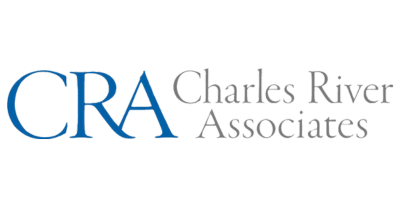Knowledge Hub
Join the Conversation!
Impartial and independent, ThoughtLeaders4 Competition Knowledge Hub hosts cutting edge industry content and insight.
Email maddi@thoughtleaders4.com to submit content.
Litigation funding paving the way for access to justice in the CAT
Date: 26/01/2023 Type: Articles Topic: Competition | Litigation |Following the Supreme Court’s decision in Walter Hugh Merricks CBE v Mastercard Incorporated and Others in 2019, the Competition Appeal Tribunal (CAT) has experienced a significantly increased workload in 2022 that will continue to rise next year.
One of the principal functions of the CAT is to provide a specialist forum where claims for damages (including collective actions) can be brought where a consumer or business has suffered loss as a result of an infringement of UK competition law.
Litigation funding is a critical component to many of these actions being pursued, particularly collective actions brought on behalf of consumers who would not ordinarily be able to pursue those that they have suffered losses from.
In this article, we examine three decisions by the CAT in 2022 that considered the funding arrangements put in place for collective actions. What is clear from these decisions is that the CAT recognises the important role that litigation funding plays in promoting access to justice and, therefore, we expect to see in 2023 a further increase in the number of claims that are being pursued in the CAT that are backed by a funder.
Dr. Rachael Kent v Apple Inc. and Apple Distribution International Ltd
On 5 May 2022, the CAT granted its fifth (and first “on the spot”) Collective Proceedings Order (CPO). The collective action, led by Dr. Rachael Kent against Apple, alleges that Apple abused its dominant position over app distribution and payment processing services. Dr. Kent now represents around 19.6 million UK mobile Apple device users who are estimated to have suffered between £621 million and £1.7 billion in damage. Relevant to both financiers and funded parties is that in this judgment the CAT denied Apple's request to disclose redacted portions of the litigation financing agreement and the ATE policy.
According to the CAT Rules, when determining whether the Proposed Class Representative (PCR) should be authorised and a class action order ordered, the CAT must consider whether the PCR will be able to pay both its own costs and the defendant's costs if it is ordered to do so. Typically, PCRs will therefore disclose substantial aspects of the arrangements they have made with litigation funders and After The Event (ATE) insurers.
Dr. Kent therefore presented copies of a Litigation Financing Agreement (LFA), an ATE insurance policy, a litigation plan and a litigation budget to the CAT. However, the premiums due under the ATE policy and certain amounts set out in the LFA were redacted on the basis of “confidentiality, privilege and strategic sensitivity.” Apple objected to the redactions, arguing that it needed more information.
Apple's arguments failed to convince the CAT. Regarding the ATE policy, it noted that disclosure of the premiums could give defendants insight into the insurers' thinking about the strength of the case, giving Apple a tactical advantage. The requested disclosure in relation to the LFA related to the amount of solicitors’ fees in excess of the agreed budgeted amounts, which were not covered by the funder and were therefore at the risk of the solicitors. The CAT considered that disclosure of the contingent element could in principle reveal legal advice on the merits of the claim and thus falls within the realms of legal privilege. Disclosure of the excess would also likely reveal the solicitors’ risk assessment and allow Apple to use a litigation tactic of increasing costs beyond budgeted amounts to put pressure on Dr. Kent's legal team.
Elizabeth Helen Coll v Alphabet Inc. and Others
On 31 August 2022, the CAT released its judgeent in Coll v Alphabet, confirming the certification of Liz Coll's claim at a hearing before the CAT on 18 July 2022, the second on-the-spot certification of class actions in the UK after Dr Kent’s. Coll's facts are very similar to Dr. Kent’s facts. The PCR filed a class action on behalf of millions of UK consumers regarding alleged anti-competitive practices by Google in the area of app distribution and payment processing services.
The CAT’s ruling was also similar in that it broadly agreed with the CAT’s approach in Dr Kent v Apple to disclosure of funding arrangements and ATE policies. The Coll decision emphasized, however, that clear and articulated reasons must be given as to why the disclosure of such information could cause material harm. However, it is not the funded party that bears the burden of demonstrating why disclosure should not be made, but their adversary to justify why it should.
Road Haulage Association Limited v Man SE and Others
On 8 June 8 2022, the CAT approved an opt-in CPO application by the Road Haulage Association (RHA), a carrier industry association, while denying a competing opt-out CPO application filed by a special purpose vehicle, UK Trucks Claim Limited (UKTC).
The CAT chose the RHA application on the basis of a number of substantive factors. With regard to funding, it considered that provided the funder’s return is not unreasonable, the CAT should not favour opt-in procedures over opt-out procedures merely because of the unavoidable need to deduct funding from the available total amount of damages recovered from the defendant (if any).
UKTC argued that its opt-out application should be preferred as its funding arrangements were significantly more favourable to claimants than those applicable to the RHA's opt-in procedure. In the case of UKTC's opt-out procedure, under the arrangements with its litigation funder and the ATE insurer, the funder's fee and ATE premium could be paid out of the amount that remains after damages have been paid to the claimants actually seeking payment.
The experience with opt-out procedures in the US and Canada teaches us that usually a significant part of the total available compensation is not claimed, probably because victims who are entitled to compensation are not aware that they can, or the amount is so low that it is not considered worth claiming. This does not apply to opt-in procedures because all persons represented have expressly decided to participate. Almost everyone will, therefore, actually claim compensation.
In the case of RHA's opt-in application, the litigation funder and insurer would have to be paid from the damages recovered for all individual claimants, reducing the ultimate amount available to them. The amount to be paid to the RHA's litigation funder varies between 5% and 30%, depending on the amount of the total compensation.
The CAT did a quick calculation. The RHA already has 315,000 trucks in its opt-in portfolio. A conservative estimate of the damage is £6,700 per truck. Total damages could, therefore, exceed £2 billion. In that situation, RHA’s funder would be entitled to 8% of this amount (approximately £170 million).
According to the CAT, this is not a cause for great concern. Also, the fact that RHA is claiming £10,000 per truck (excluding interest) and UKTC £21,000 per truck (including interest) and foreseeing that the number of 315,000 will increase significantly after the CPO (meaning RHA’s funder’s return is likely to be at least 5% of £5 billion), did not apparently change the CAT's opinion. This is because there is no realistic fear that the funding arrangements with RHA’s funder may operate unfairly towards the members of the class or that, if RHA’s claims are succesful, these members of the class are likely to be deprived of a significant portion of their damages.
The CAT reiterates that without collective proceedings the vast majority of victims would not be able to file their claims at all and collective proceedings are simply impossible without third party funding. The CAT concluded: “If the Tribunal considers that opt-in proceedings are otherwise preferable in the circumstances of the case, we think it should be slow to reject opt-in proceedings where the funder's remuneration does not appear unreasonable, only because the funder will be paid in the manner that is inevitable for proceedings of that kind.”
Author
Alex Thompson - Gateley
Our Competition Corporate Partners



















